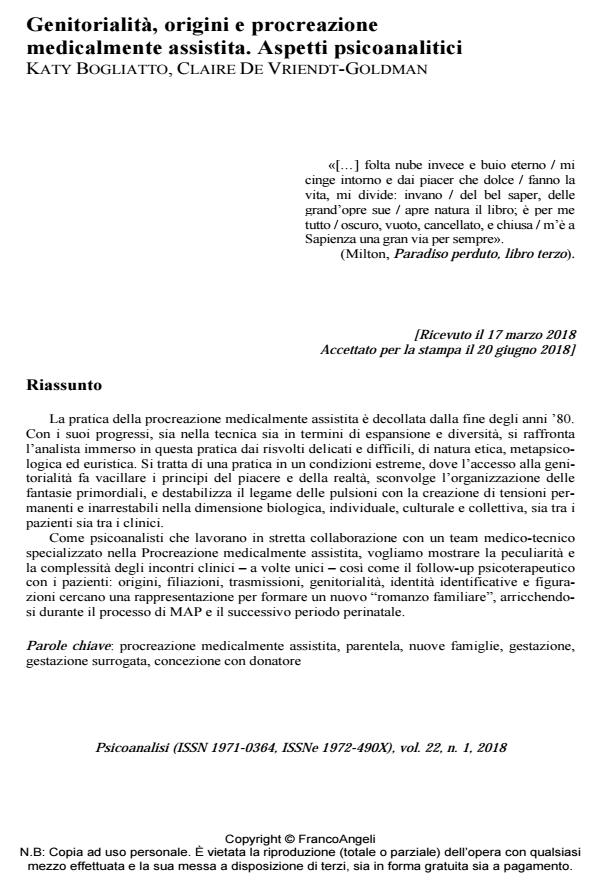Parentality, Origins, Medically Assisted Procreation. Psychological Aspects
Journal title PSICOANALISI
Author/s Katy Bogliatto, Claire De Vriendt-Goldman
Publishing Year 2018 Issue 2018/1
Language Italian Pages 21 P. 5-25 File size 248 KB
DOI 10.3280/PSI2018-001001
DOI is like a bar code for intellectual property: to have more infomation
click here
Below, you can see the article first page
If you want to buy this article in PDF format, you can do it, following the instructions to buy download credits

FrancoAngeli is member of Publishers International Linking Association, Inc (PILA), a not-for-profit association which run the CrossRef service enabling links to and from online scholarly content.
The practice of Medically Assisted Procreation has taken off since the end of the 1980s. Its advances, both technically and in terms of its expansion and diversity, face the analyst immersed in this practice to sensitive and difficult questions of an ethical, meta-psychological and heuristic nature. It is a practice in an extreme situation, where access to parenthood makes the principles of pleasure and reality vacillate, upsets the organization of primal phantasies, and destabilizes the binding of the drives by creating permanent and unstoppable tensions between the biological, the individual, the cultural and the collective, both among the patients as well as among the various clinicians. As psychoanalysts working in close collaboration with a medico-technical team in Med-ically Assisted Procreation, we wish to show the peculiarity and the complexity of the clinical meetings - sometimes unique - as well as the psychotherapeutic follow-up with the patients: origins, filiations, transmissions, parenthood, identities and figures of identification seek to represent themselves and form a new family romance, enriching themselves during the process of MAP and subsequent perinatal period.
Keywords: Medically Assisted Procreation, parenthood, new families, pregnancy, surrogate pregnancies, donor conception.
Katy Bogliatto, Claire De Vriendt-Goldman, Genitorialità, origini e procreazione medicalmente assistita. Aspetti psicoanalitici in "PSICOANALISI" 1/2018, pp 5-25, DOI: 10.3280/PSI2018-001001